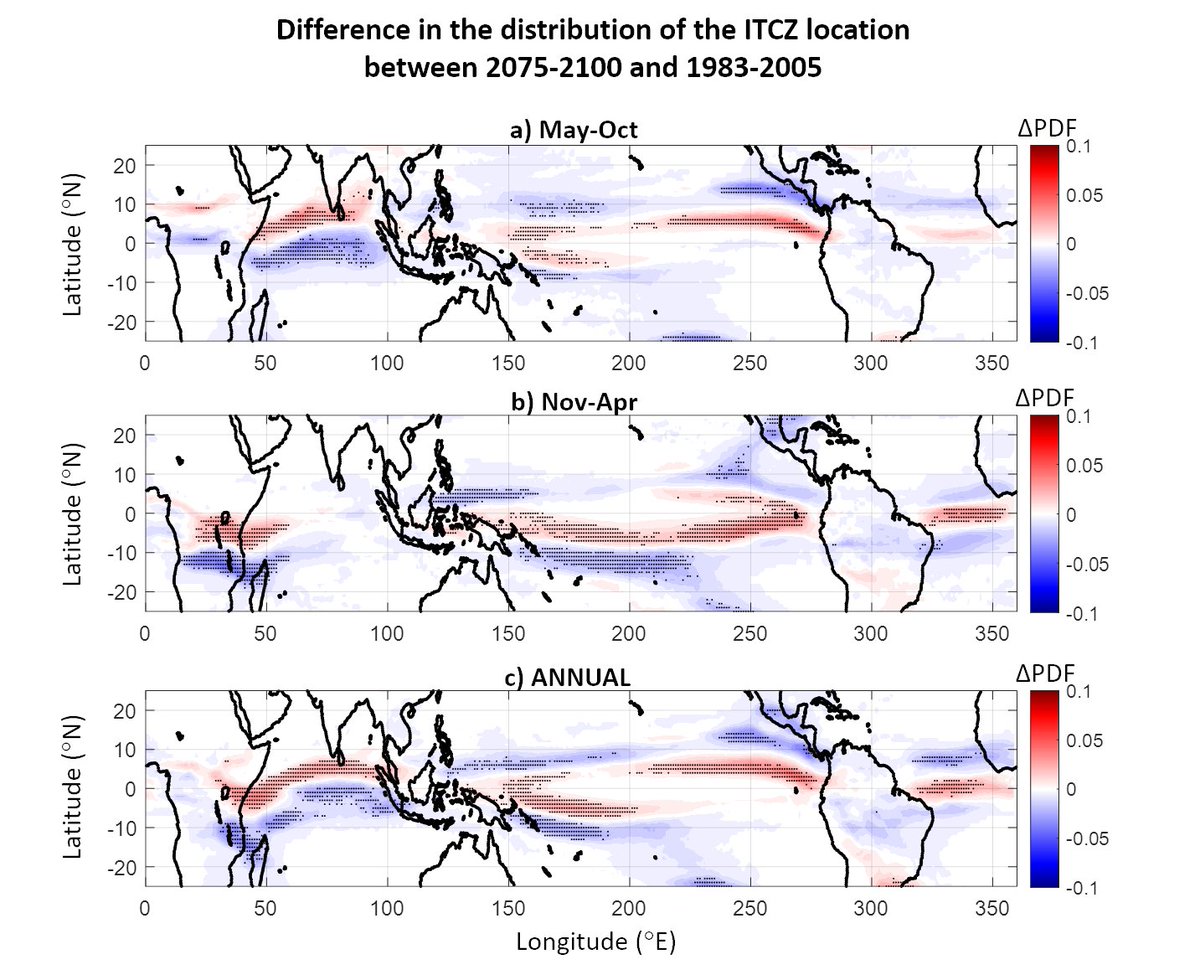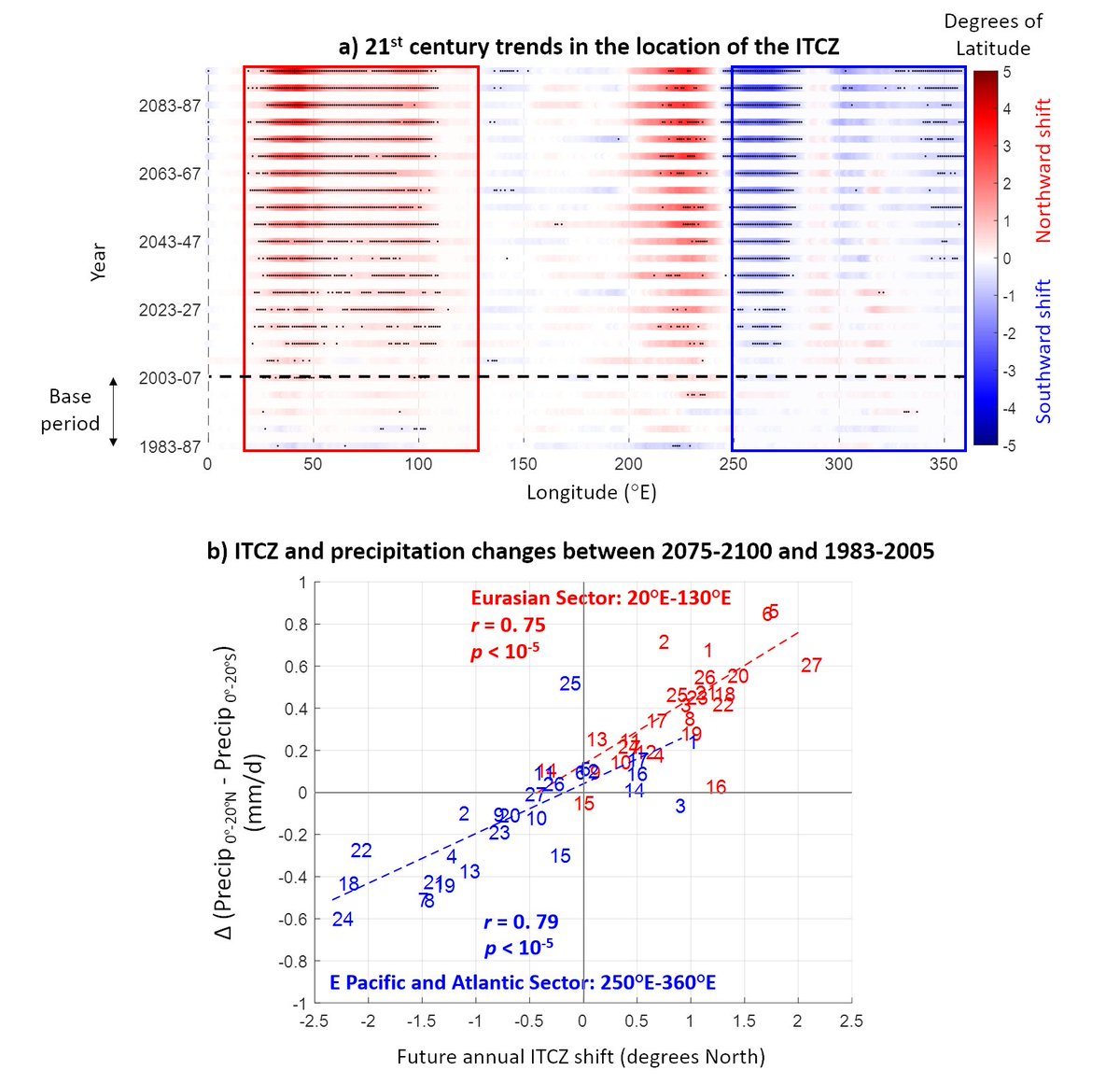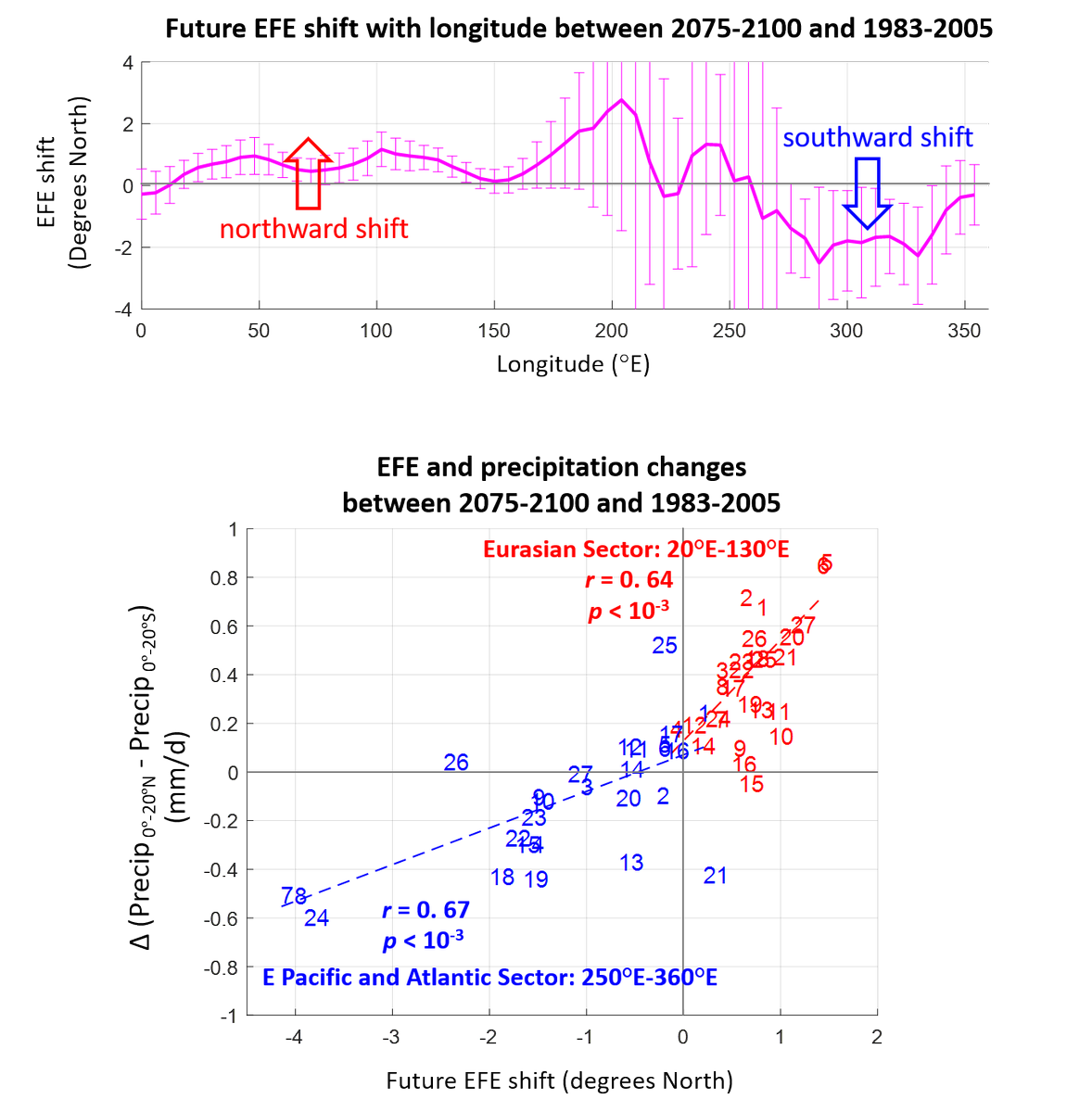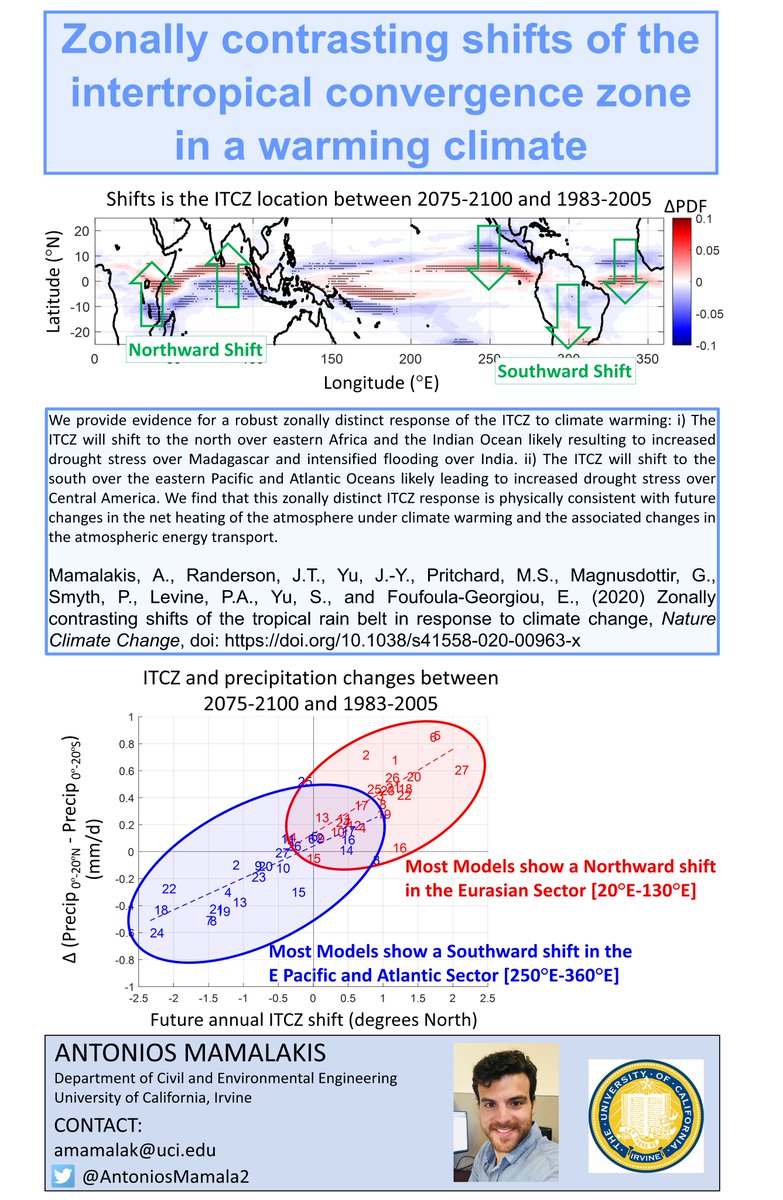How will the position of the Earth's tropical rain belt be affected by #climatechange in different parts of the world? Read our new #research, published with @SpringerNature in @NatureClimate to find out!
https://www.nature.com/articles/s41558-020-00963-x
A few key points below (1/6).
https://www.nature.com/articles/s41558-020-00963-x
A few key points below (1/6).
We use state-of-the-art climate models (CMIP6) forced with the ssp3-7.0 scenario and explore the future (21st century) shifts of the intertropical convergence zone #ITCZ in response to climate change as a function of longitude (2/6).
The majority of the models reveal a zonally contrasting response of the ITCZ to climate change. Particularly, over the Eastern Africa and Indian Ocean, the ITCZ will move to the North by 2100, while it will move to the South over the eastern Pacific and Atlantic Oceans (3/6).
We also show that the revealed ITCZ shifts are consistent with future changes in tropical sea surface temperature, changes in the atmospheric energy transport, and shifts in the energy flux equator - EFE (4/6).
Our results reveal that the almost zero ITCZ shift that has been anticipated in past zonal-mean analyses was essentially the result of zonally contrasting ITCZ shifts over two different longitudinal sectors that roughly cancel each other out (5/6).
To further infer causality of the ITCZ shifts, idealized climate experiments are needed as a complement to analyses like ours that attempt to understand mechanisms contributing to future changes in the hydrological cycle within and across different Earth system models (6/6).
I have put together a poster (attached) and a 2 min video on @YouTube to summarize the key findings of our study! Go check it out here:

 Read on Twitter
Read on Twitter





